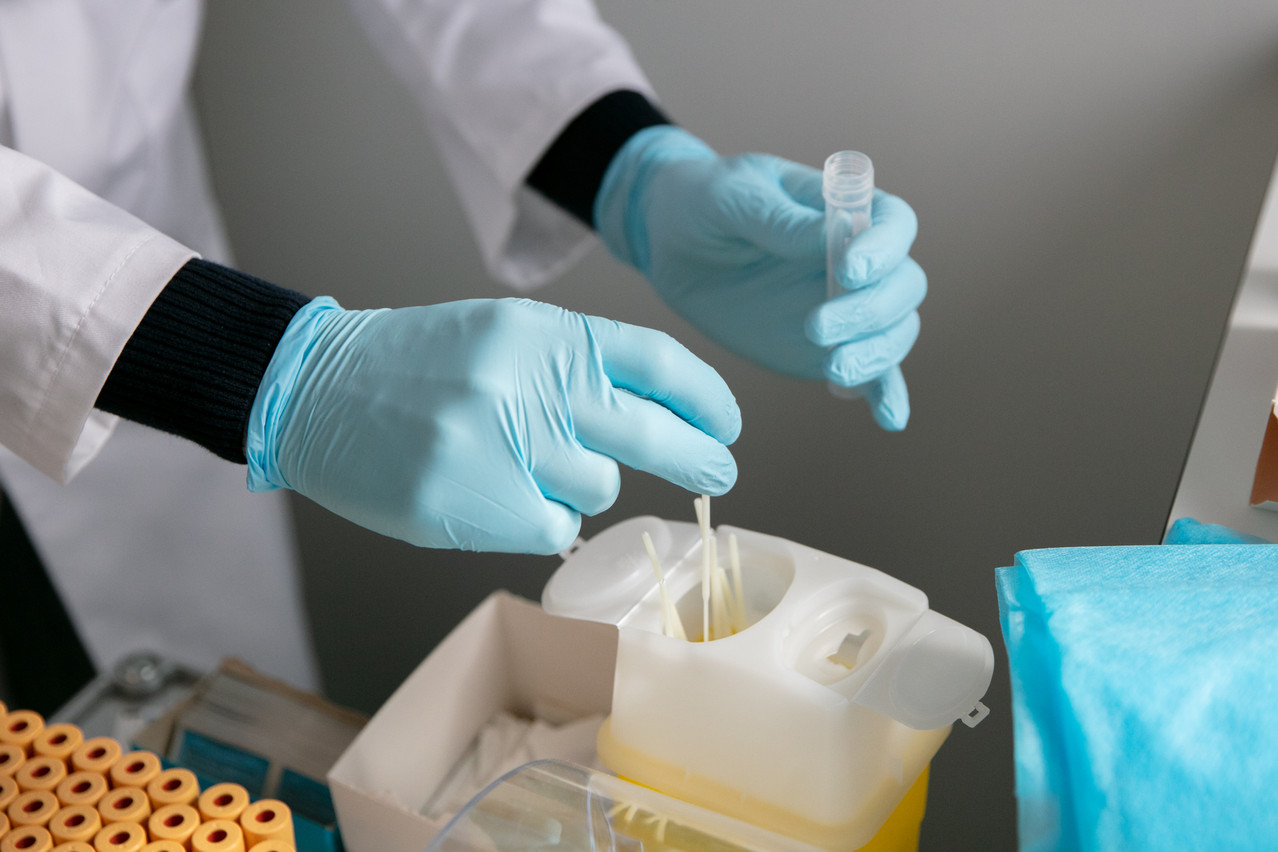“If your e-mail address is filled in, you will in any case receive an e-mail prescription to carry out a PCR test six days after the last contact with a positive person. If you are not vaccinated or recovered, you will also receive a quarantine prescription.” These are the recommendations of the health ministry as of 31 December for people who have been “in high-risk contact with a person who tested positive for covid-19”.
An employee who has been vaccinated due to being in contact with a person who has tested positive for covid-19 is therefore not obliged to quarantine. However, an employee who has not been vaccinated and has not recovered from covid-19 must quarantine. The quarantine ends on the seventh day, on the condition of a negative PCR test on the sixth day.
Several options available
“It is an inconsistency,” says Jean-Paul Olinger, director of the the union of Luxembourg businesses (UEL). Especially if we are “looking to promote vaccination”. Why should the unvaccinated stay at home when the vaccinated have to come to work? “Even if most people want to come to work, for the others, it is not really an incentive to get vaccinated.”
The discrepancy applies in particular to employees in jobs that cannot be performed remotely.
He suggests two solutions: “Either everyone has to come to work, or the non-vaccinated person is considered more likely to spread the virus. In that case, they must take time off with or without pay during the quarantine period.”
Wouldn't another option be to quarantine everyone before the negative test result, vaccinated or not? “In theory, this would be an option,” admits Olinger. “But it seems that, medically, it is not indicated,” given the lower level of risk of transmission of the virus when vaccinated. “One of the objectives is to keep social life going and to quarantine people at a minimum.”
No change in sight
Asked why the distinction for quarantine rules between vaccinated and unvaccinated is made and whether the rules could be changed to one of the options presented, the health ministry replied: “We note the position of the UEL director. The government has regular exchanges with its various partners. At this stage, there are no plans to make any changes to the quarantine and/or isolation arrangements other than those provided for in the bill currently in the legislative process. That being said, the government reserves the right to adapt the measures in place, should the fight against the pandemic require it.”
In any case, if the government wished, it should be able to ask non-vaccinated contact people to take time off work, according to labour lawyer Nadia Chouhad. “Of course, this would require a change in the law. It would be part of the policy to promote vaccination.”
The health ministry nevertheless recommends, in its 31 December document, that vaccinated or unvaccinated people who may be persons of contact to reduce “social contacts, respect barrier gestures and, if possible, work from home until your PCR test result is negative.”
This story was first published in French on . It has been translated and edited for Delano.
